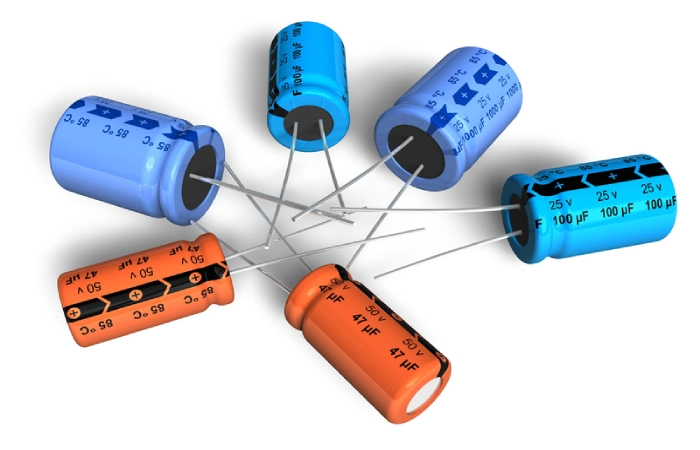Capacitors Write For Us – Contribute and Submit Guest Post

Capacitors are electronic components that store electrical energy in an electric field. They are widely used in various electrical and electronic systems for different purposes, including energy storage, filtering, coupling signals, and controlling the flow of electrical current.
For publishing article at Web Info Blog email us at contact@webinfoblog.com
A capacitor consists of two conductive plates separated by an insulating material called a dielectric. When a voltage is applied across the plates, opposite charges accumulate on each plate, creating an electric field between them. This electric field stores electrical energy in the form of potential energy.
Capacitors are found in various electronic devices and systems, including power supplies, audio equipment, telecommunication devices, and computers. They are used for multiple applications, such as smoothing power supply voltages, filtering noise, storing energy in flash photography, timing circuits, and amplifier coupling signals.
Key Features of Capacitors
Capacitance (C): Capacitance measures a capacitor’s ability to store electrical charge. It is estimated in farads (F). The capacitance value determines how much control a capacitor can keep for a given voltage.
Voltage Rating: Capacitors have a maximum voltage rating, indicating the maximum voltage they can handle before the dielectric material breaks down. Choosing a capacitor with a voltage rating higher than the maximum voltage it will encounter in a circuit is crucial to prevent damage.
Dielectric Material: The dielectric material between the plates determines the capacitor’s characteristics, such as capacitance, voltage rating, and temperature stability. Common dielectric materials include ceramic, electrolytic, tantalum, polyester, polypropylene, and others.
Tolerance: Capacitors have a tolerance that specifies the allowable variation in their capacitance value. It is expressed as a percentage, indicating the range within which the capacitance can deviate from the fixed value.
How to Submit an Article?
For publishing article at Web Info Blog email us at contact@webinfoblog.com
Why Write for Web Info Blog- Capacitors Write For Us
- Writing for Web Info Blog may expose your article to a large audience
- Writing for us may help you establish yourself and make you an expert in the field
- Writing for us may improve knowledge in every individual topic
- You have an opportunity to share your knowledge with this platform
Search Related Terms
The words associated with the subject are listed below
- Electric energy
- Electric field
- Electric charges
- Passive electronic component
- Terminals
- Capacitance
- Circuits
- Condenser microphone
- Electrical conductors
- Dielectric
- Sintered
- Electrolyte
- Glass
- Ceramic
- Plastic film
- Paper
- Mica
- Oxide layers
- Resistor
- Voltage
Search Terms
Capacitors Write for Us
Guest post-Capacitors
Capacitors contribute
Submit post Capacitors
Capacitors Submit an article.
Capacitors guest blogger
Writers Wanted Capacitors
Capacitors Suggest a post.
Capacitors guest author
Guidelines of the Article
- We at Web Info Blog welcome fresh and unique content related to Capacitors.
- Web Info Blog allows a minimum of 500+ words related to Capacitors.
- The editorial team of Web Info Blog does not encourage promotional content related to its articles.
- For publishing article at Web Info Blog email us at contact@webinfoblog.com
- Web Info Blog allows articles related to News, Media, Programming, Building a Mobile Application, Building Websites, Start Ups, Mobile Apps for Seniors, CRM, Ecommerce, Online Programming and Digital Marketing.


